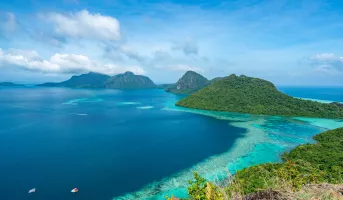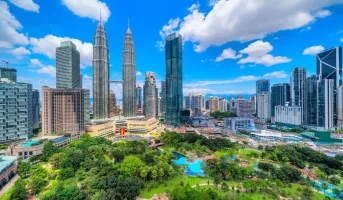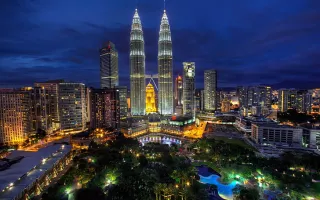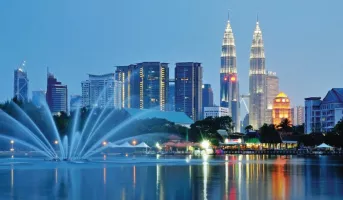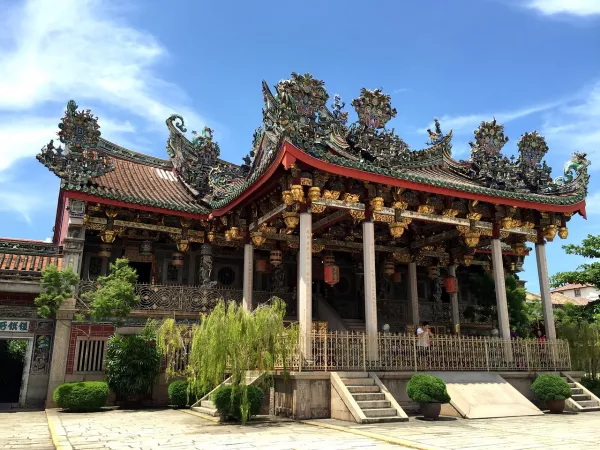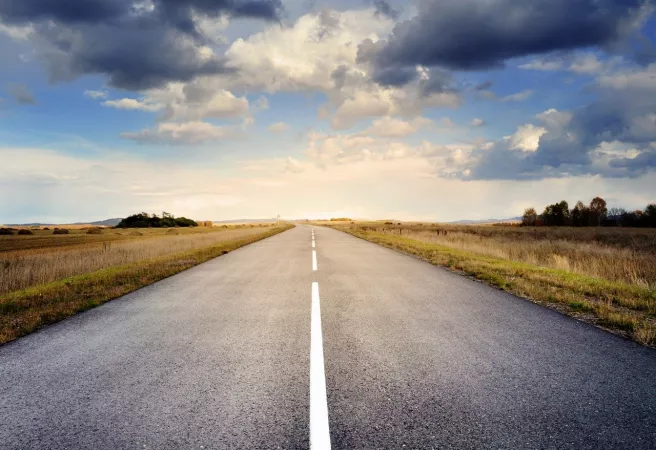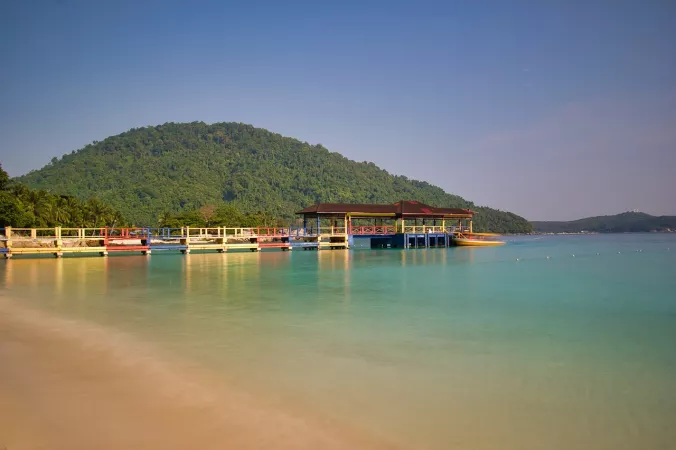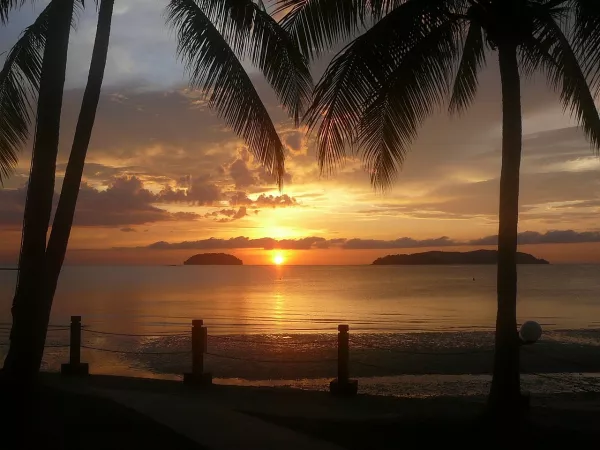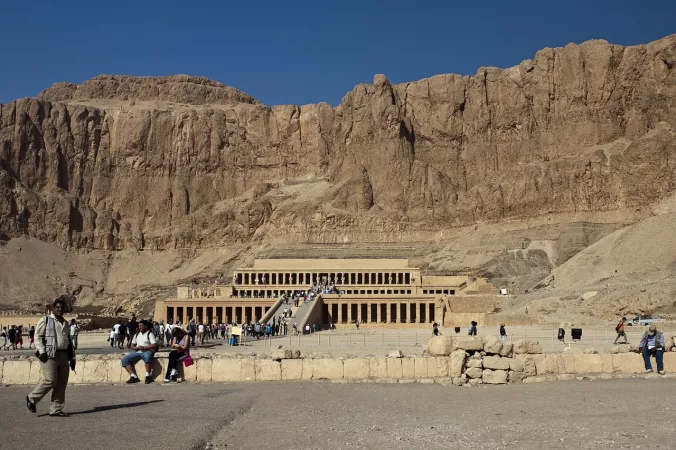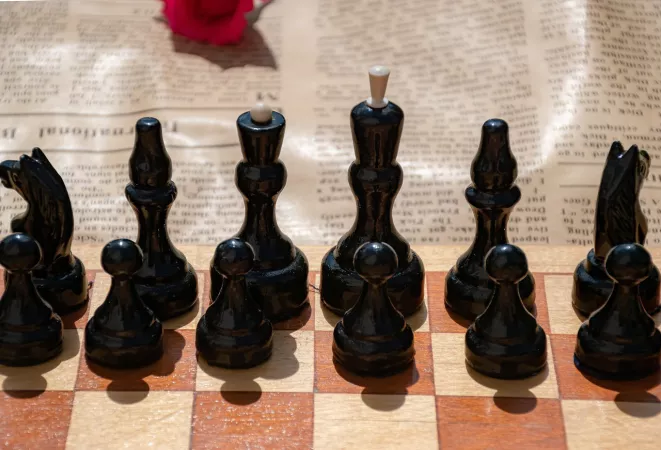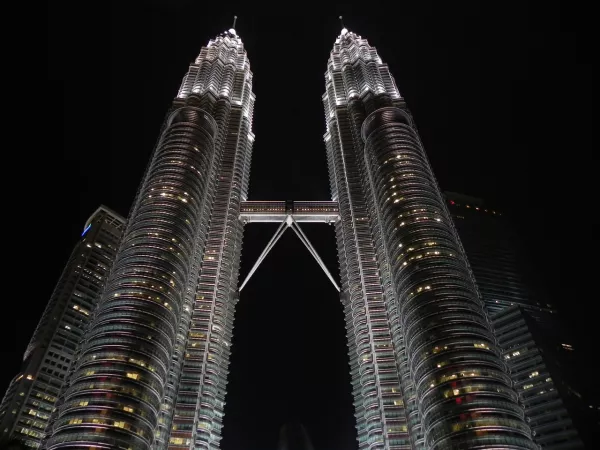
Kuala Lumpur Travel Guide
Kuala Lumpur, the vibrant capital of Malaysia, is a melting pot of cultures and experiences. Known for its iconic Petronas Twin Towers, bustling markets, and delicious street food, Kuala Lumpur offers a perfect blend of modernity and tradition. The city's rich history, diverse geography, and cultural significance make it a top destination for travelers seeking an unforgettable experience in Southeast Asia.Top Attractions in Kuala Lumpur
- Petronas Twin Towers
- Batu Caves
- Merdeka Square
- KL Tower
- Chinatown
Kuala Lumpur is Famous for
Kuala Lumpur is famous for its towering skyscrapers, bustling markets, and diverse culinary scene.Top Attractions in Kuala Lumpur
- Shopping in Bukit Bintang
- Exploring Little India
- Visiting Thean Hou Temple
- Experiencing Jalan Alor Night Market
- Discovering Islamic Arts Museum
What's Great about Travelling to Kuala Lumpur?
- Diverse Culture: Experience a mix of Malay, Chinese, and Indian cultures
- Food Paradise: Indulge in delicious street food and fine dining options
- Modern Infrastructure: Enjoy world-class amenities and attractions
What's Not So Great about Travelling to Kuala Lumpur?
- Crowded Tourist Spots: Popular attractions can get crowded
- Traffic Congestion: Traffic jams can be a challenge during peak hours
- Humid Weather: Kuala Lumpur can get hot and humid, especially during certain months
Travel Tips for Kuala Lumpur
- Visa Requirements: Check visa requirements before traveling to Malaysia
- Transportation: Use public transportation like LRT and Monorail to get around
- Safety: Be cautious of pickpockets in crowded areas
Important Kuala Lumpur trip information
- Ideal Duration: A week is ideal to explore the city and its surroundings
- Best Time to Visit: Visit between May and July for pleasant weather
- Nearby Airports and Railway Stations: Kuala Lumpur International Airport (KUL) and KL Sentral Railway Station
Per Person
24,900
*EXCLUDING APPLICABLE TAXES 4.9 Ratings
( 185 Reviews )
( 185 Reviews )
Per Person
24,299
*EXCLUDING APPLICABLE TAXES 4.9 Ratings
( 185 Reviews )
( 185 Reviews )
Total
80,000
*EXCLUDING APPLICABLE TAXES Per Person
24,700
*EXCLUDING APPLICABLE TAXES 4.9 Ratings
( 185 Reviews )
( 185 Reviews )
Per Person
39,990
*EXCLUDING APPLICABLE TAXES 5.0 Ratings
( 19 Reviews )
( 19 Reviews )
Per Person
24,850
*EXCLUDING APPLICABLE TAXES 4.9 Ratings
( 185 Reviews )
( 185 Reviews )
FAQ's on Kuala Lumpur
Q1: What is the best time to visit Kuala Lumpur?
Kuala Lumpur experiences a tropical rainforest climate, so the best time to visit is during the dry season from May to July and December to February. These months offer pleasant weather with less rainfall, making it ideal for exploring the city. However, keep in mind that Kuala Lumpur is a year-round destination, with events and festivals happening throughout the year. Tourist seasons are typically busiest from December to February and June to August.
Q2: Do I need a visa to travel to Kuala Lumpur?
Most tourists can enter Malaysia visa-free for stays of up to 90 days. However, it's essential to check the specific visa requirements based on your nationality before traveling. Some countries may require a visa or visa on arrival. Ensure your passport is valid for at least six months beyond your intended stay. Always verify the latest visa regulations before your trip to Kuala Lumpur.
Q3: What are the must-visit attractions in Kuala Lumpur?
Kuala Lumpur boasts iconic landmarks like the Petronas Twin Towers, Batu Caves, Menara KL Tower, and Merdeka Square. Explore the vibrant street markets of Chinatown, experience the cultural diversity in Little India, and visit the Islamic Arts Museum. Don't miss trying local dishes at Jalan Alor food street and shopping at Bukit Bintang. Nature lovers can escape to the KL Forest Eco Park or the Perdana Botanical Gardens. Whether you're interested in history, shopping, or culinary delights, Kuala Lumpur offers a diverse range of attractions for every traveler.
Q4: Is Kuala Lumpur a safe place to travel?
Kuala Lumpur is generally considered safe for tourists. Like any big city, it's essential to be cautious of pickpocketing in crowded areas and to avoid isolated places at night. Stay alert in tourist areas and use reputable transportation services. While the city is safe for travelers, it's recommended to stay informed about local news and adhere to basic safety precautions. As in any destination, it's advisable to keep your belongings secure and be aware of your surroundings.
Q5: What is the local currency in Kuala Lumpur and can I use credit cards?
The local currency in Kuala Lumpur is the Malaysian Ringgit (MYR). ATMs are widely available throughout the city, and major credit cards are accepted in hotels, restaurants, and larger shops. It's advisable, however, to carry some cash for smaller establishments and street vendors. Inform your bank of your travel plans to avoid any issues with card transactions abroad. Money changers are also prevalent in tourist areas, offering competitive rates for currency exchange.
Q6: What is the local cuisine like in Kuala Lumpur?
Kuala Lumpur's culinary scene is a vibrant mix of Malay, Chinese, and Indian influences, showcasing a diverse range of flavors. Don't miss trying local favorites such as Nasi Lemak (coconut rice), Char Kway Teow (stir-fried noodles), Roti Canai (flaky bread with curry), and Satay (grilled skewers). Street food stalls and night markets offer an array of dishes, providing a true taste of Malaysian cuisine. Be adventurous and explore the bustling food scene in Kuala Lumpur, where you can savor authentic flavors and aromatic spices that define the local gastronomy.
Q7: What transportation options are available in Kuala Lumpur?
Kuala Lumpur offers a range of transportation options, including an efficient metro system (LRT and MRT), buses, taxis, and ride-hailing services like Grab. The KL Hop-On Hop-Off bus is a convenient way to explore the city's main attractions. Renting a car is also an option for those looking for more flexibility in their travels. Traffic can be congested during peak hours, so plan your journeys accordingly. Walking is a great way to explore certain areas like Bukit Bintang and Chinatown. Embrace the diverse transportation options in Kuala Lumpur to navigate the city comfortably and efficiently.
Q8: Are there any cultural norms or etiquette I should be aware of when visiting Kuala Lumpur?
When visiting Kuala Lumpur, it's essential to respect local customs and traditions. Dress modestly when visiting temples or mosques, covering your shoulders and knees. Remove your shoes before entering someone's home or places of worship. Showing respect for elders and using polite greetings like "Selamat Pagi" (Good Morning) or "Terima Kasih" (Thank You) is appreciated. Avoid public displays of affection, especially in conservative areas. It's customary to use your right hand for eating and giving/receiving items. Be mindful of cultural differences and be open to experiencing the rich tapestry of traditions in Kuala Lumpur. By embracing local customs, you'll enhance your travel experience and show respect for the local culture.
Q9: I am a travel agent. How can I buy travel leads of Kuala Lumpur?
Register yourself as a travel agent at agents.tripclap.com and then you can buy travel leads to Kuala Lumpur once your account is approved. For more details contact our support team at +91-8069186564 or support@tripclap.com
